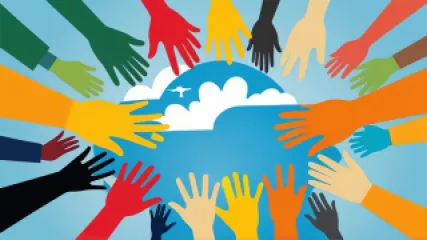Why Improving Mental Health Literacy is Crucial for Emotional Intelligence
Why Improving Mental Health Literacy is Crucial for Emotional Intelligence
Mental health literacy is a crucial component of emotional intelligence, yet it is often overlooked or undervalued in our society. In this opinion piece, we will delve into the importance of improving mental health literacy and how it can unlock the full potential of our emotional intelligence.
The Significance of Mental Health Literacy
Mental health literacy refers to the knowledge and understanding of mental health conditions, their symptoms, and the available treatments and resources. It encompasses the ability to recognize, understand, and manage one's own mental health, as well as the mental health of others. In a world where mental health challenges are increasingly prevalent, improving mental health literacy is of utmost importance.
Mental health literacy plays a vital role in our overall emotional intelligence. Emotional intelligence, often referred to as EQ, is the ability to identify, understand, manage, and reason with emotions. It is a crucial skill that enables us to navigate the complexities of our inner world and interpersonal relationships. By enhancing our mental health literacy, we can better understand the emotional experiences that shape our lives and the lives of those around us.
The Connection Between Mental Health Literacy and Emotional Intelligence
Emotional intelligence and mental health literacy are intrinsically linked. When we have a deeper understanding of mental health, we are better equipped to recognize and manage our own emotions, as well as the emotions of others. This, in turn, fosters greater self-awareness, empathy, and the ability to regulate our emotional responses.
For example, a person with high mental health literacy may be able to identify the symptoms of depression in a friend or family member, understand the underlying causes, and provide support and resources. This level of understanding not only benefits the individual in need but also strengthens the emotional connection and communication within the relationship.
Conversely, a lack of mental health literacy can lead to misunderstandings, stigma, and a failure to provide adequate support. When we are unaware of the signs and symptoms of mental health conditions, we may misinterpret behaviors or emotions, leading to strained relationships and missed opportunities for empathy and support.
The Importance of Emotional Intelligence in Personal and Professional Life
Emotional intelligence is not just a desirable trait; it is a crucial skill that can have a significant impact on various aspects of our lives. In our personal relationships, high emotional intelligence enables us to navigate conflicts, foster deeper connections, and build stronger support systems. In the professional realm, emotional intelligence is often cited as a key factor in successful leadership, effective teamwork, and overall career advancement.
Individuals with high emotional intelligence are often better equipped to manage stress, adapt to change, and communicate effectively. They are more attuned to the needs and feelings of others, enabling them to build trust, resolve disputes, and foster a positive work culture. In an increasingly complex and interconnected world, the ability to understand and manage emotions has become an invaluable asset.
Improving Mental Health Literacy: A Pathway to Enhanced Emotional Intelligence
To unlock the full potential of our emotional intelligence, we must prioritize the improvement of mental health literacy. This can be achieved through a multifaceted approach, including:
1. Education and Awareness Campaigns
Widespread educational initiatives and awareness campaigns can play a crucial role in dispelling myths, reducing stigma, and providing the public with a deeper understanding of mental health. These efforts should target individuals of all ages, from schools to workplaces, to ensure that mental health literacy becomes a fundamental aspect of our collective knowledge.
2. Integrating Mental Health Literacy into Curricula
Incorporating mental health literacy into educational curricula, from primary to tertiary levels, can equip individuals with the necessary knowledge and skills to navigate their own mental health and support the wellbeing of others. By making mental health a core part of the learning process, we can empower the next generation to be more emotionally intelligent and resilient.
3. Promoting Mental Health Professionals and Resources
Ensuring access to qualified mental health professionals, such as therapists, counselors, and psychologists, is essential for improving mental health literacy. Additionally, providing resources and information on various mental health conditions, treatment options, and self-care strategies can empower individuals to take a proactive approach to their emotional wellbeing.
4. Fostering Open Dialogues and Reducing Stigma
Creating open and non-judgmental dialogues about mental health is crucial for reducing stigma and encouraging individuals to seek support. By normalizing conversations about mental health, we can create a more compassionate and understanding society that values emotional wellbeing as much as physical health.
Embracing the Power of Mental Health Literacy
As we navigate the complexities of our modern world, the importance of mental health literacy and its connection to emotional intelligence cannot be overstated. By improving our understanding of mental health, we can unlock the full potential of our emotional intelligence, leading to stronger relationships, greater personal and professional success, and a more compassionate and resilient society.
Dewayne Fuller, a mental health advocate and consultant, emphasizes the transformative power of mental health literacy:
"When we embrace the importance of mental health literacy, we unlock the door to deeper self-awareness, empathy, and the ability to navigate the emotional landscape of our lives. It is a powerful tool that can enhance our personal growth, our relationships, and our collective wellbeing."Dewayne Fuller
The journey towards enhanced emotional intelligence begins with a dedication to improving mental health literacy. By investing in this crucial area, we can cultivate a more emotionally intelligent society, one that is better equipped to support, understand, and uplift one another. Let us embark on this transformative journey, embracing the power of mental health literacy to unlock our full emotional potential.






